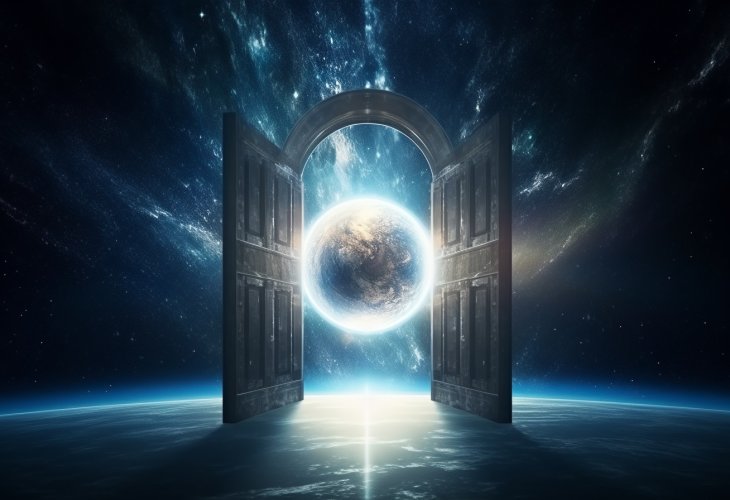End of Days
Understanding the Messiah: From Fear to Hope — and How to Prepare
Why the coming of Mashiach (the Messiah) scares some, what classic Jewish sources say, and how to prepare for lasting spiritual growth

The concept of the coming of Mashiach can bring about excitement and reverence for some, but fear and hesitation for others.
One of Judaism’s Thirteen Principles of Faith is not only to believe in Mashiach's arrival but to await it: “I believe with perfect faith in the coming of the Mashiach, and even though he may tarry, I will wait for him every day that he will come.”
How is it possible to “await” something you’re afraid of?
A Common, Honest Fear
Rabbi Shmuel Polak addresses a worry felt by many, including observant Jews: “These days, when the situation is volatile and sensitive, someone came over and said quietly, ‘There’s something that rattles me even more than war… the Mashiach. The Mashiach scares me.’ He isn’t the first or second to say it. The fear is real. So how can I long for something that frightens me?”
Why People Feel Anxious
Most of us know that we have spiritual blind spots. When Mashiach arrives, there’s no hiding behind anyone; he will know each person’s real level — where we’re strong and where we’re not.
Classical sources say that Mashiach will have ruach hakodesh (divine insight) and will grasp a person’s deeds without seeing or hearing reports. Radak writes: “He will sense who among people are good and who are evil, and will not need sight or hearing to judge and reprove; from his knowledge and understanding he will grasp their deeds with but little contemplation.” Similarly, the Yad Ramah writes: “He comprehends the truth of a matter through the Holy Spirit… he knows who is innocent and who is liable… he ‘smells’ by the Holy Spirit and judges.”
If It’s Supposed to Be Good — Why the Dread?
Rabbi Polak explains: “Bottom line, God created the world; if He says that when the Mashiach comes it will be good, that means it will be the very best — pleasant and sweet beyond imagination. Today some things are good and painful at once. After Mashiach comes, it will be purely good. We must trust the Creator when He says it will be good.”
The Deeper Worry: “When the Door Closes”
Even spiritually serious people feel a second fear: when Mashiach arrives, the sale ends. A door closes, permanently. It can feel like missing the train, with no further chance to rack up new growth.
“Some will indeed miss opportunities; it will be painful and sad,” Rabbi Polak writes. “But those who already awakened to teshuvah (return) and live in loyalty to the Creator by keeping the mitzvot, still feel anxious because there’s always more to add. After the Mashiach comes, the gate closes to certain kinds of spiritual gains.”
The Maharal explains that the “sale ends” fully only in the World to Come (the next state of reality — “Garden of Eden on earth”). In the Messianic era, God still wants to “increase merit for Israel, so He increased for them Torah and mitzvot.” It will therefore still be possible to gain merits and do mitzvot — just in a more limited way than before Mashiach's arrival.
 (Photo: shutterstock)
(Photo: shutterstock)Why Growth Is Different After Mashiach Arrives
Once God’s kingship is obvious to everyone, choosing repentance or major spiritual change will no longer carry the same weight, because the struggle and ambiguity are gone. Those decisive moves can truly be made only before Mashiach arrives, while there is concealment and full free will. “Since ‘the earth will be filled with knowledge of the Lord as waters cover the sea,’ guarding one’s eyes will be much less difficult, and sitting with an open Talmud won’t be the same exercise in self-mastery,” explains Rabbi Polak.
What Will Still Count?
According to the Maharal, in the Messianic era you can continue accruing merit based on the foundation you already built. You won’t begin brand-new tracks, but you can continue along the ones you laid.
For example, if there is a housing freeze, people cannot purchase new properties. If however you already own a rental, the rent will continue coming in every month. “Right now, you can still make new ‘investments’ in closeness to God and build new ‘projects’ of Torah and good deeds,” Rabbi Polak notes. “When Mashiach comes, construction freezes. You can’t create new foundations, but only continue earning on what you already acquired; the meter keeps running.”
Visualizing It: Different Slopes, Same Direction
Think of spiritual growth as a graph line. Some have a gentle slope, while others, steep. After Mashiach comes, each person will continue along the same slope that was established. One person advances slowly and lukewarmly, while another works hard at mitzvot and character refinement. Each continues to rise at the pace they set before.
“You won’t be able to start a brand-new momentum then, as that would be creating a new foundation,” Rabbi Polak writes. “But your account of merits, mitzvot, and repairs will keep accruing, calibrated to the base, pace, and level you’ve built so far.”
What Should We Do Now?
Ultimately, a person’s spiritual level is measured by loyalty: how fully you identify with the Divine and are willing to follow through, with all your heart, to the end. When Israel left Egypt, what “check” sealed the covenant of love? Willingness — “I remember the kindness of your youth… your going after Me in the wilderness, in a land not sown.” What is required of us now is the willingness to be God’s beloved — steadfast, loyal, and all-in.
If the Creator promises good, the future is not a jump scare, but the best kind of unveiling. Instead of spending time in fear, we must shape today so that tomorrow will lift us higher.

